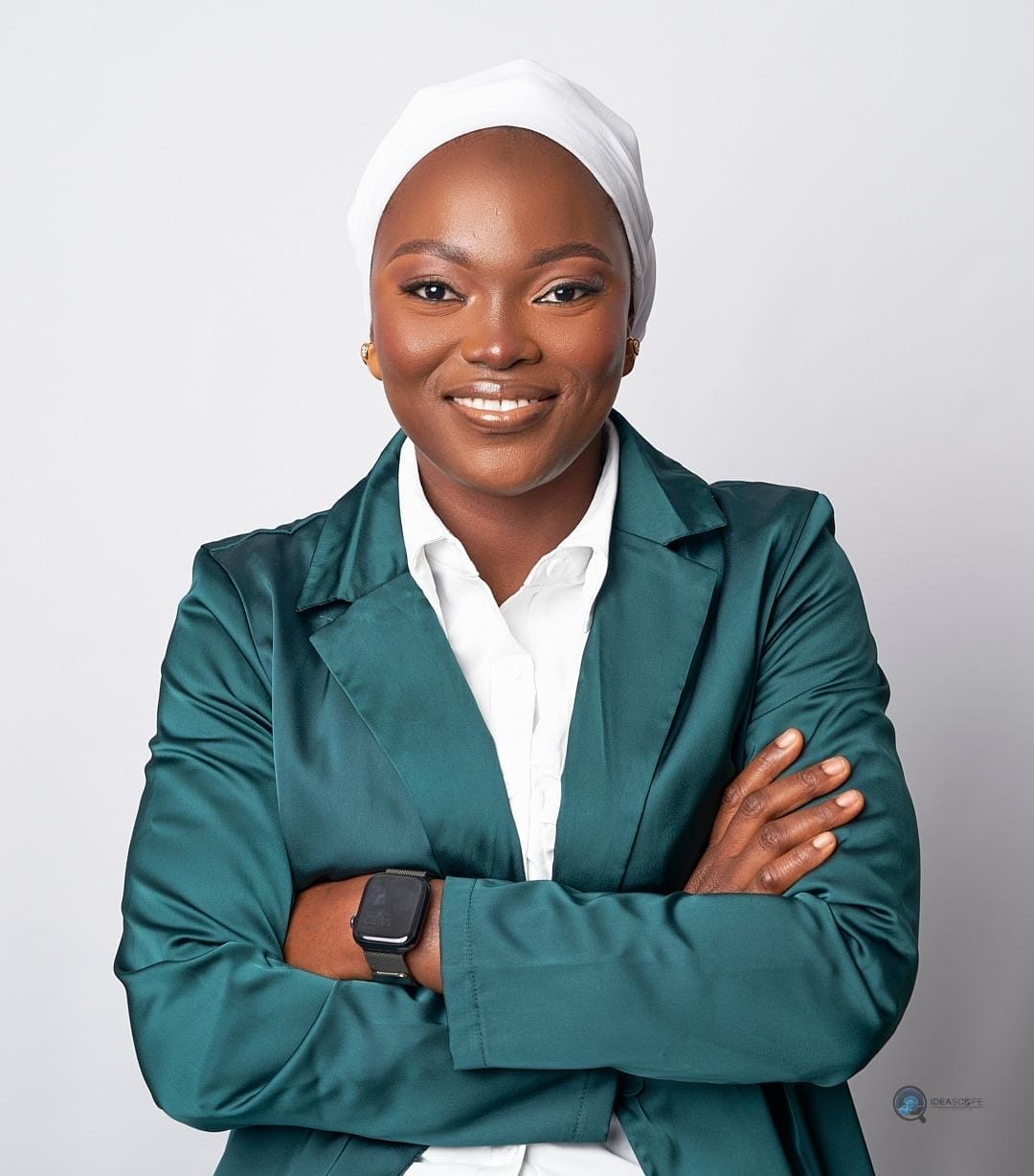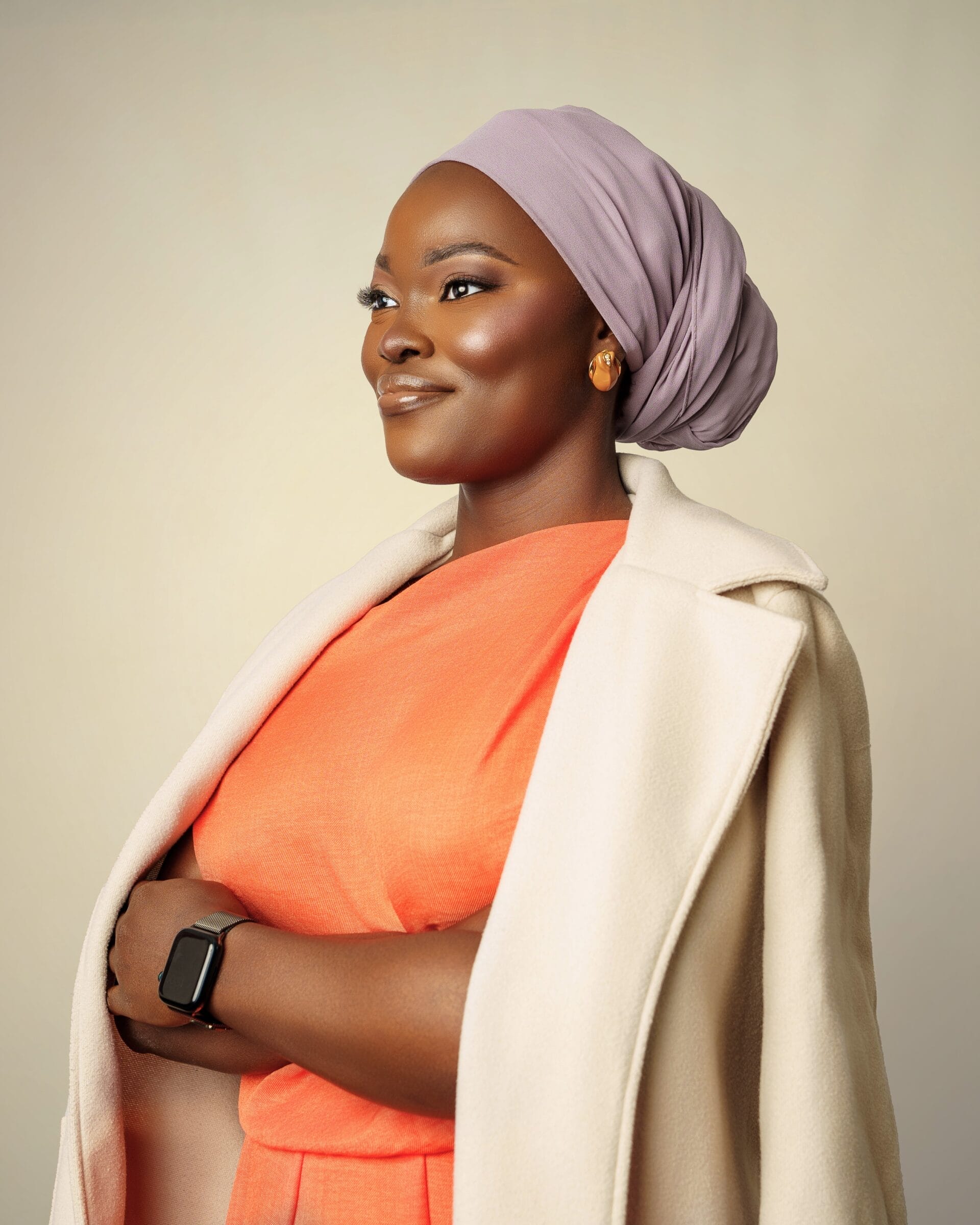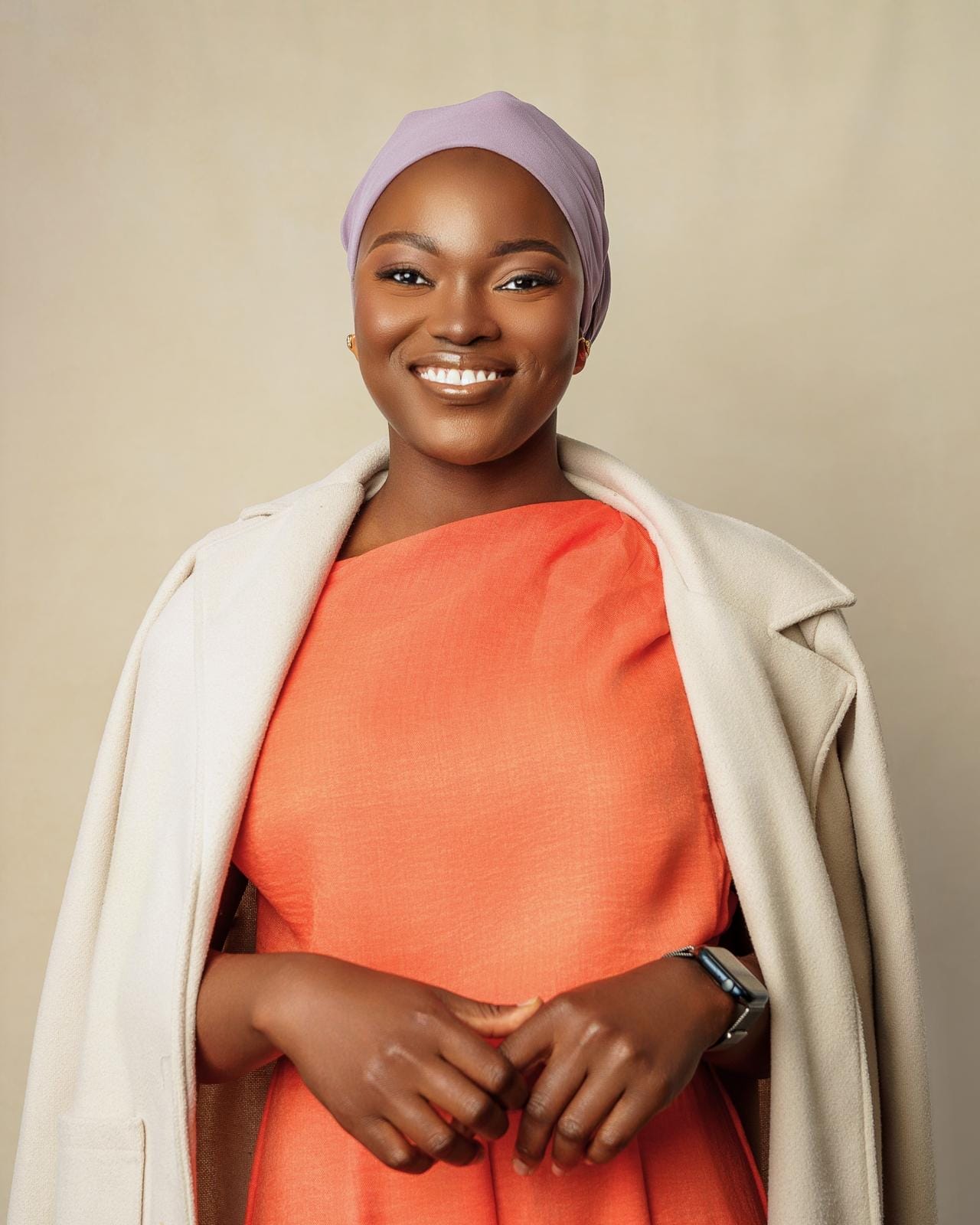Rukayat Balogun is leading Africa’s data revolution with precision and purpose. As a Data Analyst, Machine Learning Expert, and Founder of Lunddr Services, she has shaped groundbreaking initiatives across tech startups, public utilities, and global communities. Fresh off her win at the 2025 LWB Global Awards in the UK and the adoption of her co-authored AI Global Manual by four universities, Rukayat joins Empire Magazine Africa for a rare and revealing conversation about impact, innovation, and what comes next.
1. What’s the first word that comes to mind when you hear “impact”? And how has that word shaped your journey from mathematics education to machine learning leadership?
“Responsibility.”
Impact, to me, isn’t about the size of applause it’s about the depth of responsibility. From studying mathematics, where every number has weight and consequence, I learned early on that precision matters. That mindset stayed with me as I moved into data science and machine learning where every model, every dashboard, can affect decisions that impact real lives.
I’ve always felt a sense of duty to make tech human, accessible, and rooted in real change. For me, impact isn’t theory. It’s action measurable, intentional, and people-centered.
2. Lunddr Services has become a name synonymous with data excellence. What was the spark that led you to create it and what’s the vision now?
The spark was watching laundry businesses, some run by brilliant, hard-working people struggle with disorganisation, lost inventory, and no data trail. I realised they didn’t need more work, they needed smarter tools.
So I built Lunddr Services as a tech platform to help laundry businesses manage their inventory, streamline operations, and access performance insights. What began as a solution to a niche problem has become a mission to digitise under-supported sectors across Africa one workflow at a time.
The vision now? To build an ecosystem where everyday businesses can thrive through data. We’re scaling into new markets and adding predictive features, from usage forecasting to automated customer communication.
3. Co-authoring the AI Global Manual and seeing it adopted across four universities, was a major moment. What does that achievement represent in the bigger picture of African tech advancement?
It’s a signal that Africa isn’t just catching up we’re contributing. Co-authoring the AI Global Manual gave me the opportunity to shape the narrative around ethics, fairness, and contextual relevance in AI. Seeing it adopted by universities confirmed what I’ve always believed: Africa has the intellectual capital and lived experience to lead in global innovation.
It also represents a bridge between academic theory and local realities. We need more tools like that manual that reflect diverse voices and can be used in Lagos just as effectively as in London.

4. Let’s talk about the LWB Excellence in Leadership Award, what does winning on that global stage mean to you personally and professionally?
It was a powerful moment. Personally, it affirmed that my story with all its detours, doubts, and grit matters. Professionally, it reminded me that leadership isn’t about titles. It’s about consistency, courage, and creating space for others.
The award wasn’t just mine it belonged to every young person who’s ever felt underestimated or invisible in the tech world. It was a spotlight moment, yes, but it also felt like a call to go even deeper, to mentor more, and to keep building what others said was impossible.
5. What is a misconception people have about data science or AI in Africa and how are you helping change that narrative?
The biggest misconception is that Africa is only a user of tech not a producer of it.
People still think AI here means imported solutions, but the reality is we have homegrown innovators solving unique problems with brilliant precision. I challenge that narrative by building context-aware platforms like Lunddr, training upcoming data scientists, and speaking on global stages where our voice is often missing.
Africa doesn’t need saviours it needs systems that recognise our value and infrastructure that amplifies it.
6. Process management meets passion in your work. How do you balance the need for structure with the call for innovation?
It’s a dance, one I had to learn through trial and error.
I’m both creative and analytical, so I’ve built routines that allow space for innovation within structure. Data gives me the framework, but intuition and user empathy guide how I break or stretch that frame.
I also believe that processes should evolve and I revisit them regularly. Innovation happens when we hold on to the goal, but remain flexible in how we get there.
7. Looking back, what moment changed everything for you? And what lesson from that moment do you carry into every room you enter?
There was a moment early in my career when I presented a data solution to a panel and someone asked, “Who helped you build this?” The assumption wasn’t curiosity it was disbelief that someone like me could have done it.
That moment lit a fire in me. It reminded me that competence doesn’t always get recognised unless it comes with courage. Since then, I carry that lesson with me: Don’t shrink to fit. You belong in every room your work has prepared you for and you have every right to speak with clarity and confidence.
8. You’ve led IEEE student branches and tech campaigns, but what drives you when no one’s clapping or watching?
Legacy. And love for the craft.
I’m driven by the quiet knowing that what I’m building today could open doors for someone I’ll never meet. Whether it’s a cleaner interface, a better process, or a mentoring message sent at midnight I show up even when it’s silent. That discipline is what turns effort into impact.

9. The world is rapidly evolving. What’s next for you in the next 12 months? A new project? A new revolution?
In the next 12 months, I’m launching a Small Business Data Bootcamp designed to equip African entrepreneurs with practical data tools for growth. We’ll be partnering with local hubs to train, digitise, and connect businesses like salons, laundries, and tailors to tech ecosystems.
Lunddr will also be integrating multilingual support and financial tracking tools to make operations smoother for small teams. And personally, I’ll be contributing to a global AI ethics policy group because I believe our continent must help shape the guardrails of tech, not just follow them.
10. If your impact could be captured in one powerful statistic, what would it be?
1,000 women trained, 100 businesses transformed, 10 mindsets shifted and 1 purpose: impact with integrity.
Because for me, the ripple effect matters more than the spotlight. If what I build can change one business, inspire one girl, or challenge one outdated system, then that’s the legacy I want to scale.

